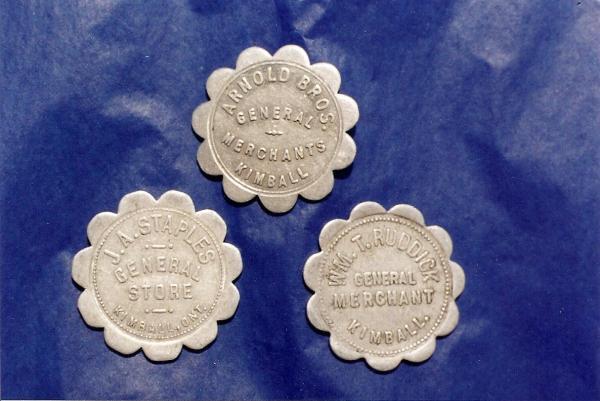
Kimball, located in the former Moore Township at the intersection of County Road 80 (Courtright Line) and Kimball Road, developed due to the construction of the Canada Southern Railroad through the area. It was named for James Kimball, the first postmaster and owner of a general store when the railroad came to the area.
Throughout its history, the general stores were central to Kimball. In addition to Kimball’s store, William T. Ruddick built a store across the road (southwest corner) in 1904. This was sold to Mr. J. A. Staples in 1913 and to Ed Arnold in 1919. Morris Wagg and then Milton & Ilene MacKinlay were subsequent owners. In 1979, the MacKinlays sold the store to the Ministry of Transportation and it was torn down due to its proximity to the road.
The accompanying photograph shows a souvenir dish showing the Wm. T. Ruddick store at Kimball. Also shown are trade tokens from the various owners of the store – Ruddick, Staples, and Arnold.

Beginning in 1880, trade tokens were popular in general stores as a form of currency. Tokens would be given as part of a shopper’s change. As well, customers selling produce from the farm, such as eggs or butter, to the store would receive their payment in trade tokens. This ensured that the customer would return to use his or her money at the same store as each had its own tokens. Tokens for more specialized use were also produced, such as barbershop tokens, bread tokens, dairy tokens and cordwood tokens.
Besides the scalloped shape shown here, tokens are found in a variety of shapes including round, square, triangular and hexagonal. While production of trade tokens officially ended in 1925, rural areas sometimes continued to use them through the Depression.
Sources:
Canada West’s Last Frontier, Jean Turnbull Elford, 1982
Coins of Canada 2002, J. A. Haxby & R. C. Willey, Toronto: Unitrade Press, 2001
Lambton County Names and Places, A. J. Johnston, 1925
Sarnia Observer, “Token collector hooked on history”, Terry Easterby, Oct. 17, 1998 and “Story of an old store”, Jan. 18, 1997

